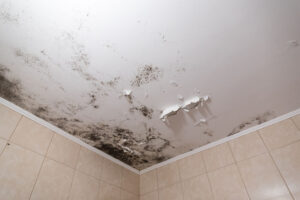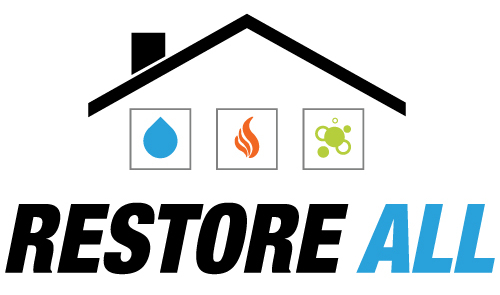 Mold is a common problem that can arise in rental properties, causing potential health risks and property damage. As a tenant, it’s essential to understand your rights and responsibilities when it comes to mold infestations. Likewise, landlords need to be aware of their obligations to provide a safe and habitable living environment. In this comprehensive guide, we will explore the signs of mold, the responsibilities of both tenants and landlords, and the steps you can take to prevent and address mold issues effectively.
Mold is a common problem that can arise in rental properties, causing potential health risks and property damage. As a tenant, it’s essential to understand your rights and responsibilities when it comes to mold infestations. Likewise, landlords need to be aware of their obligations to provide a safe and habitable living environment. In this comprehensive guide, we will explore the signs of mold, the responsibilities of both tenants and landlords, and the steps you can take to prevent and address mold issues effectively.
Signs of Mold in a Rental Property
Identifying the presence of mold in a rental property is crucial for both tenants and landlords. Mold can grow in damp and moist areas, such as basements, bathrooms, and areas affected by water leaks. Some common signs of mold include:
-
Colored, furry growth on moisture-exposed surfaces like walls, floors, ceilings, and carpets.
-
A damp, musty odor in the property.
-
Frequent headaches, allergy-like symptoms, or respiratory issues experienced by tenants.
-
Visible water stains or discoloration on surfaces.
Landlord’s Responsibility for Mold Remediation
In most cases, landlords are responsible for addressing mold infestations and ensuring their rental properties are safe and habitable. The warranty of habitability requires landlords to provide a dwelling free from health or safety hazards. If the mold is caused by the landlord’s negligence, such as failing to repair plumbing systems or fix leaks, the landlord is generally liable for the costs of mold remediation.
Tenant’s Responsibility for Mold Infestation
Tenants also have a responsibility to maintain the rental unit and prevent mold issues. If the mold infestation is caused by the tenant’s actions or negligence, such as improper ventilation or failure to clean regularly, the tenant may be held liable for the cost of mold remediation. It is essential for tenants to practice good housekeeping and promptly report any signs of mold to their landlord.
Preventing Mold in Rental Properties
Prevention is key when it comes to mold in rental properties. Both tenants and landlords can take proactive measures to prevent mold growth. Here are some tips:
-
Proper ventilation: Use vents or open windows to allow moisture to escape after activities that generate moisture, such as showering or cooking.
-
Promptly address water leaks: Report any leaks to the landlord immediately to prevent water damage and mold growth.
-
Regular cleaning: Clean up spills and moisture promptly, and maintain good housekeeping practices to prevent the accumulation of dust and debris.
-
Maintain proper humidity levels: Use dehumidifiers or fans in areas prone to excess moisture, such as bathrooms and basements.
-
Regular inspections: Conduct routine inspections to identify and address any potential moisture issues or signs of mold growth.
Hiring Professional Mold Remediation Services
While some tenants and landlords may attempt to address mold issues themselves, it is often recommended to hire professional mold remediation services. Certified mold remediation professionals have the expertise and equipment to safely and effectively remove mold from the property. When hiring a mold remediation team, consider the following:
-
Verify credentials and insurance: Ensure that the professionals are properly trained and insured.
-
Understand the remediation process: Ask for a clear explanation of the steps they will take to remediate the mold.
-
Equipment used: Inquire about the equipment they will use, such as HEPA air scrubbers and vacuums, to ensure thorough cleaning.
-
Experience: Choose professionals with experience in mold removal and restoration.
Legal Considerations for Mold in Rental Properties
The legal landscape regarding mold in rental properties varies by state and locality. While some jurisdictions have specific laws and regulations governing mold, others rely on general landlord-tenant laws and the concept of habitability. It’s important for both tenants and landlords to familiarize themselves with the laws and regulations in their specific area.
Landlord’s Duty to Maintain Habitable Premises
Regardless of specific mold legislation, landlords have a duty to provide habitable premises to their tenants. This duty includes maintaining the property in a condition that is free from health hazards, including mold. Landlords should promptly address any mold issues reported by tenants and take appropriate measures to remediate the problem.
Tenant’s Rights Regarding Mold Disclosure
While federal law does not require landlords to disclose mold infestations, some states have specific regulations regarding mold disclosure. Tenants should check their state’s legislation to determine if there are any requirements for landlords to disclose mold issues. Even in the absence of specific laws, a landlord may still be held liable if they were aware of a mold problem and failed to address it.
Timeframe for Landlord to Fix a Mold Problem
The timeframe for a landlord to fix a mold problem can vary depending on the severity of the issue and local regulations. While there are no specific federal laws governing mold remediation timelines, some states may have guidelines or requirements. Landlords should address mold problems promptly to ensure the health and safety of their tenants.
Tenant’s Liability for Mold Issues
Tenants can be held liable for mold issues if the infestation is caused by their actions or negligence. Failure to maintain proper cleanliness, ventilation, or reporting of water leaks can contribute to mold growth. It is important for tenants to fulfill their responsibilities in preventing mold and promptly reporting any signs of mold to their landlord.
Tips for Landlords to Handle Mold Problems
Landlords can take proactive steps to handle mold problems effectively:
-
Insurance coverage: Review your insurance policy to determine if it covers mold-related damages.
-
Lease clauses: Consider including specific clauses in the lease agreement that address mold prevention and responsibilities of both parties.
-
Regular maintenance: Conduct routine inspections and address any potential water leaks or moisture issues promptly.
-
Open communication: Encourage tenants to report any signs of mold or water leaks immediately.
-
Prompt remediation: Take swift action to remediate mold issues to protect the health and safety of tenants.
Mold in rental properties can pose significant health risks and property damage. Both tenants and landlords have responsibilities in preventing and addressing mold issues. Tenants should promptly report any signs of mold to their landlords and practice good housekeeping habits. Landlords have a duty to maintain habitable premises and promptly address mold issues reported by tenants. By working together and taking proactive measures, tenants and landlords can prevent mold infestations and ensure safe and healthy living environments in rental properties.
Remember, early detection and swift action are crucial when it comes to mold. If you suspect mold in your rental property, don’t hesitate to address the issue promptly to protect your health and the integrity of the property.
Contact Us (954-338-1111) for a Free Estimate!
—
 About Restore All
About Restore All
Restore All, LLC is a licensed, insured, full-service Professional restoration company providing Water, Fire and Mold remediation and restoration for residential and commercial property. Our certified Water & Fire damage technicians and licensed Mold assessors & remediators are committed to providing professional restoration and fast and affordable service 24 hours a day. Call us today at (954) 338-1111 to see how we can help.
> Learn More

 About Restore All
About Restore All